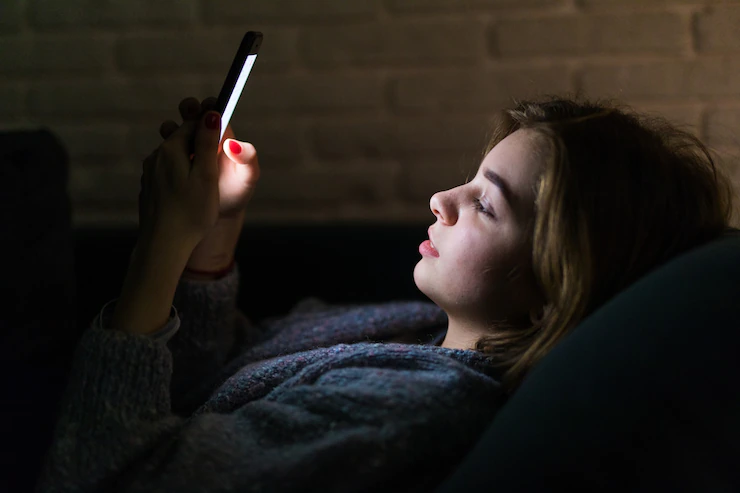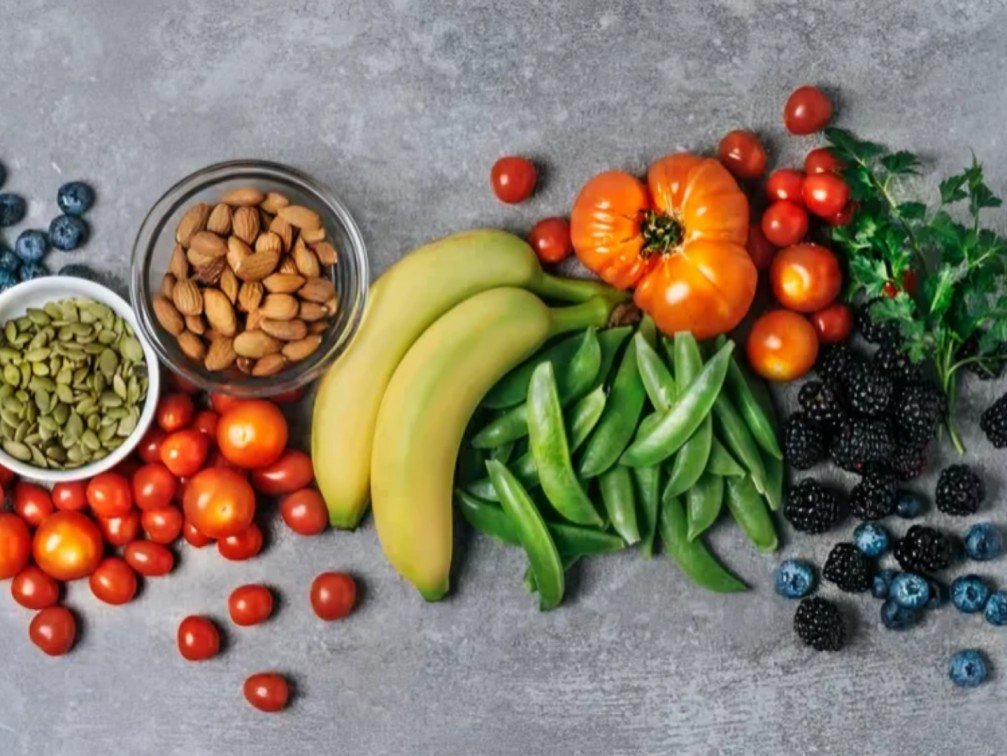Have you ever noticed your eyes feel stingy after a long day of looking at your screen? Maybe they feel dry, heavy, or just… tired. You may tell yourself it’s simply because you didn’t get enough sleep or had a long workday. But what if it’s something more? Something you are exposed to every day, all day – and never even think about?

That “something” is blue light.
You’ve probably heard of it. It is the light that is emitted from your phone. From your laptop. From your TV. From your LED ceiling light. And while it may not look any different from other light, your eyes definitely can see the difference, even if you cannot.
So, what is blue light, exactly?
Technically speaking, blue light is a high-energy, short-wavelength light. It’s part of the visible light spectrum, meaning we can see it—unlike UV rays. Now, the sun is actually our biggest source of blue light. But when we talk about the “bad” kind, we’re usually referring to the kind coming from digital devices and artificial lighting.
It’s not all bad though. Some blue light is necessary—it helps keep us awake and alert during the day. It even helps regulate our internal clock. But like most things, too much of it (especially the artificial kind) can start to wear us down.
Why your eyes are feeling the strain
Think about how close we sit to our screens. Phones are in our faces first thing in the morning and often the last thing we see at night. All that exposure adds up—and our eyes aren’t thrilled about it.
Some studies suggest that long-term exposure to blue light may damage the retina and possibly lead to something called age-related macular degeneration later in life. That’s a fancy way of saying it could affect the part of your vision that helps you see clearly and in detail.
But even without the long-term risks, blue light messes with us in more immediate ways. Eye strain, headaches, blurry vision—sound familiar? And here’s the kicker: it can seriously mess with your sleep. Blue light delays melatonin production, which means your brain doesn’t get the “time to sleep” signal when it should. So if you’re staring at your phone in bed and wondering why you’re wide awake at 2 a.m., now you know.
Little signs you might be overexposed
You don’t need to wait for an eye exam to know something’s off. Some signs are subtle—like needing to rub your eyes more often, or finding it harder to focus after a few hours on your computer. Maybe you’re squinting a lot more lately or relying on eye drops just to get through your day.
If you’ve been feeling drained, restless at night, or waking up groggy despite a full 8 hours in bed… blue light could be part of the problem.
So, what can you actually do about it?
Let’s be honest—most of us aren’t about to ditch our screens. They’re part of life now. But we can be smarter about how we use them.
Start small. Try the 20-20-20 rule: every 20 minutes, look away from your screen at something 20 feet away for 20 seconds. It gives your eyes a moment to relax, which they desperately need.
You can also use night mode on your devices—it shifts the screen to warmer tones in the evening and reduces blue light exposure. It won’t solve everything, but it definitely helps.
Blue light glasses have also become a go-to for a lot of people, especially those working long hours in front of screens. While the research is still catching up, many wearers swear by them. If they help you feel less drained, that’s already a win.
And here’s something simple but surprisingly effective: just blink more. We blink way less when we’re focused on a screen, which dries out our eyes and makes them feel worse. Set a reminder if you need to.
Your diet matters too (yep, really)
Your eyes don’t just need external protection—they need internal support too. Foods rich in antioxidants like lutein and zeaxanthin (found in spinach, kale, eggs, and even orange peppers) can help protect your eyes from blue light damage over time.
Hydration plays a role too. Dry eyes get worse when you’re dehydrated. So keep a water bottle nearby while you work, scroll, or binge.
The bottom line
Screens aren’t going anywhere. And honestly, we don’t want them to. They connect us, entertain us, help us do what we love. But they do take a toll—and it’s okay to admit that.
Your eyes are quietly working overtime every day. They deserve a little care, a little break, a little intention.
So maybe tonight, you put the phone down 30 minutes earlier. Maybe you take that mid-day screen break. Maybe you just start noticing when your eyes are telling you they’re done for the day.
Because when you take care of your eyes now, you’re not just protecting your vision—you’re protecting your energy, your sleep, your focus, your peace.
And those are things worth seeing clearly.
Stay tuned to inspire4ward for more updates.



